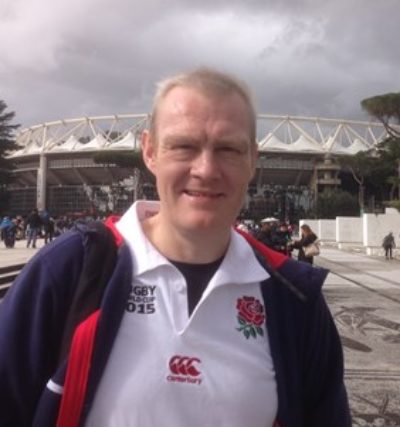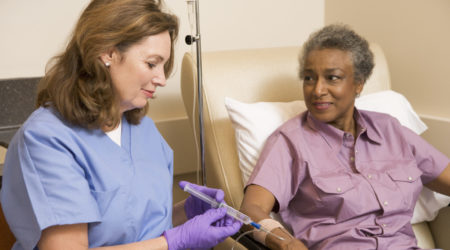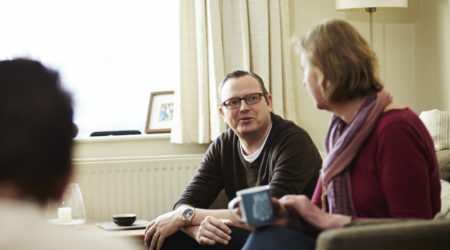



Justin
Justin, 48, was diagnosed with inoperable pancreatic cancer in 2013
I was originally diagnosed in August 2013 at the age of 43 after returning from 5 days in Dubrovnik where I felt unwell, had no energy and started turning yellow, rather than getting a tan!
I was overweight and had started trying to lose weight deliberately since the start of the year, and whilst the first stone was a struggle to lose the 2nd disappeared quickly but I didn’t think anything untoward. I also had a bit of backache but put that down to my office chair and spending too much time at my pc. I felt quite tired and needed a break, and my energy levels were low. Otherwise I felt fine and had no other symptoms.
After consulting a GP on my return from holiday, by which time my urine was very dark and my stools grey and took a while to flush, I was referred initially to a Liver Specialist for the jaundice on the belief my bile duct was blocked.
Unfortunately, following a CT scan it was apparent that the blockage was due to the pancreatic tumour pressing from the outside. A stent was fitted and CT scans undertaken before I was then referred to hospital to be told the devastating news which was completely shocking and out of the blue.
From first seeing the GP to my first chemotherapy was 3 weeks which was amazingly quick although it didn’t feel like it at the time.
I was quite down about the cancer to begin with, but after a couple of cycles I read an article in the Telegraph which mentioned survival rates which were shockingly low. But I then thought about how I compared to the average patient – younger, fitter (now I had lost weight) and on a newer form of treatment, and this strengthened my resolve to beat them and not look at the statistics again.
During treatment I tend to work at least 2 days a week and work almost normal hours during any breaks. I find work therapeutic and it stops me thinking about the cancer. Also my team and colleagues have been very supportive and help me stay positive.
Initially I was told that the cancer was inoperable but after 17 cycles of Folfirinox, the tumour and the metastatic tumours in my liver had shrunk, plus they showed no signs of activity so I was referred for surgery.
This involved the total removal of my pancreas, spleen, gall bladder and a third of my liver and a 10 day stay in hospital, 2 of which were in the HDU (high dependency unit).
Overall the side effects have been ok and manageable, with the most annoying the feeling of cold especially to cold drinks and food after chemo. Other side effects were mouth sores both in terms of mouth ulcers and mouth sores on my lips and loss of hair, but at least I don’t have to shave every day so there are some benefits!
I also suffered from very bad night sweats, especially during the course of the 11 cycles of chemo. The worst though is the tiredness which I feel throughout the treatment and during any break. The initial neuropathy in my fingers disappeared before the surgery but I still have it in my feet which is like having my socks rucked up behind my toes.
I now take creon with food and the pancreatectomy has left me with type 1 diabetes so I now take insulin before eating. I also take penicillin twice a day to protect against infections to replace the function of the spleen.
Given the mildness of the side effects I have coped well although I do have down days on occasion. Fortunately I have been able to travel and my wife and I have still been able to go away on long weekends away both in the UK, Europe and as far as New York last Christmas.
I also play cricket for my local village when between courses of treatment, and follow Worcester Warriors Rugby as often as possible both home and away.
I’m currently on a break from chemo after the latest scans didn’t show any activity but will have regular scans and blood tests.
I have been very focussed throughout the last 3 years and I am determined to remain as active as possible and beat this dreadful disease.
I do feel the trauma of having cancer affects both family and friends almost as hard with most being very supportive but unfortunately some don’t know how to deal with the news and I think support for family members should be more readily available.
September 2016




